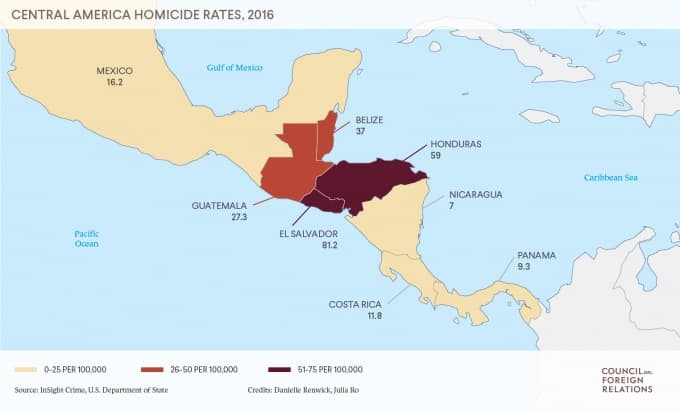Advertisement
Why Mass. Politicians Are Traveling To Central America
Resume
Este reporte tambien está disponible en español.
We're traveling with U.S. Congressman Jim McGovern and Somerville Mayor Joseph Curtatone in Honduras and El Salvador this week as they join immigrant advocates on what's being described as a fact-finding mission.
The group is focused on building legal and legislative defenses for Central Americans seeking asylum in the United States, as well as for Temporary Protected Status (TPS) holders.
There are an estimated 7,000 TPS holders from Honduras and El Salvador living in Massachusetts. The federal humanitarian program allows certain immigrants to live in the U.S. temporarily without fear of deportation following natural disasters, public health epidemics or amid civil war in their native countries.
El Salvador became eligible for TPS following a series of earthquakes in 2001 while Honduras received TPS designation after being hit by a massive hurricane in 1998. The temporary status for each of the countries was routinely renewed under previous administrations. This year, the Trump administration announced the program for both nations will be terminated. TPS for El Salvador expires in September 2019, and Honduras loses TPS designation in January 2020.
The federal government instructed TPS holders from these countries to explore other legal means of staying in the country or to make arrangements to leave the U.S. when their temporary status expires. Immigrant advocates have argued that ending TPS for these countries will mean separating parents from their U.S.-born children. And they argue ending legal work authorization for TPS holders will have serious financial consequences for business and homeowners, some of whom have lived legally in the U.S. for more than a decade.
Boston-based advocates Centro Presente and Lawyers’ Committee for Civil Rights and Economic Justice filed a lawsuit earlier this year alleging the Trump administration's decision to end TPS for El Salvador, Honduras and Haiti was based on racism — not on policy requirements. The federal government asked for the case to be dismissed, but a judge in Boston federal court agreed to hear the suit. Lawyers are due back in court in September.

The delegation will be meeting with Honduran and Salvadoran government officials as well as U.S. embassy representatives to discuss conditions on the ground, and the impact these conditions have on migration patterns to the U.S.
“It is shameful and deeply upsetting to see the Trump administration end TPS for Salvadorans and Hondurans. Their decision turns a blind eye to America’s decades-long commitment to helping individuals and families who cannot return to their homelands due to conflict, violence, and disaster," Congressman McGovern said in a statement. "Furthermore, it threatens our national security by ignoring serious problems like gang and gender-based violence that continue to plague countries like Honduras and El Salvador.”
Gang violence has driven many Hondurans and Salvadorans from their homes. The countries have two of the highest rates of homicide and femicide -- targeted violence against women — in the world. A history of civil war and political instability in the region has left power vacuums often filled by local gangs. Mara Salvatrucha, or MS-13, has seen its global profile rise in recent years, with Trump describing the gang's members as "animals," and U.S. Attorney General Jeff Sessions promising in Boston to "hunt ... down" MS-13 members and deport them back to Central America.
MS-13 actually finds its roots in Los Angeles, where communities of Salvadorans immigrated in the 1980s and early '90s seeking safety during a time of civil war in their home country. Gang experts often say MS-13 originated as a "self-defense" group established by Salvadorans living in Los Angeles to insulate and protect themselves. A shift in U.S. immigration policies in 1996 made it much easier to deport immigrants for minor infractions like shoplifting. This enabled greater deportations of MS-13 members back to El Salvador -- a country many had not called home since childhood.
While traveling in El Salvador and Honduras, members of the Massachusetts delegation expect to meet with families affected by the widespread violence that weaves its way into daily life in these neighboring Central American countries. We also plan to meet with families still waiting to be reunited with their children after being separated at the U.S. border as a result of a Trump policy that the president spiked more than a month ago after widespread bipartisan criticism.
The broad topic of immigration has been a staple of the Trump presidency and continues to inspire heated rhetoric on opposing sides of the debate. Over the next week, we'll bring you perspectives and stories from two of the countries most intimately intertwined in this political moment.
This article was originally published on August 13, 2018.
This segment aired on August 13, 2018.
